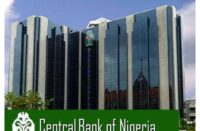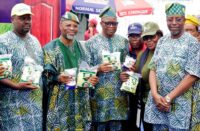By Peter OBIORA InvestAdvocate
Lagos (INVESTADVOCATE)-Analysts at the just concluded Second West Africa Global Banking & Investment Forum in London United Kingdom (UK) has affirmed that Real Gross Domestic Product (GDP) growth in the Economic Community of the West Africa States (ECOWAS) area is expected to rise to six percent (6.0%) by year 2013.
This is contained in a paper titled: “Investing & Doing Business in West Africa: Some Strategic Perspectives” by Rolake Akinkugbe, Head, Oil & Gas Research & West Africa Specialist (Ecobank Group).
Akinkugbe affirmed that only one (1) West African country, Sierra Leone, is listed in the top 10 of the World Bank’s Ease of Doing Business Index.
“Gap between top performers such as Ghana and rest of the pack is still wide and regional average still low at 15%,” she said.
According to her, Organisation pour l’Harmonisation en Afrique du Droit des Affaires (OHADA) saw business start up costs have decreased by 67% of the average per capita income, while property registration times decreased by 28%.
In certain categories some West African economies are comparable to the world’s best performers; starting a business in Senegal takes only 5 days, same as in Canada and faster than in France. Construction permits in Burkina Faso take only 98 days, 3 month faster than the European Union average.
Burkina Faso closed the most gaps to the frontier of best regulatory practices for local entrepreneurs out of any West African countrys Akinkugbe said.
A summary statement of presentations and discussions at the forum prepared by Dr Heather Deegan, Senior Consultant to BusinessinAfrica Events UK and made available to www.investadvocateng.com affirms that the old perception of the region as one of crime and corruption is receding and being replaced by a concept of soft challenges, that is, bureaucratic blockages, regional trade barriers, power supply shortages and demand imbalances.
Also, reforms have been carried out but they need to be sufficiently deep to ensure sustainability and long-term development. Agriculture has been highlighted, power plants are being built and there has been an emphasis on the funding of SMEs. With modernisation, the institution of good regulatory frameworks and adoption of sound lending practices progress can be made.
On the part of Nigeria, it is conceivable that it could follow Brazil’s path and if it were to follow that trajectory it has seven (7) years to improve its economic performance.
Furthermore, compared with other new Investment Grade Sovereigns, Nigeria would have to run just to stand still. Urgent structural reforms are required in the power sector. The country’s official reserves are improving but these are affected by oil price volatility and a buffer really needs to be in place.
Its also affirmed that 35% of Nigeria’s GDP is based on the oil & gas sector. Nevertheless, Nigeria is a positive story and there is more optimism surrounding the banking sector since improved corporate governance was introduced. More improvement within this sector could occur if further reforms were implemented.
In the same vein, economic growth in Ghana has been encouraging and peaked in 2011 when Oil came on line. The credibility of the Central Bank is a positive factor and inflation is still below 10%.
However, there has been a large increase in Private Credit growth, over 40% in nominal terms, and public spending tends to boom in election years. An election is due this year.
Analysts further affirmed that there is much potential for investors in both Nigeria and Ghana in fixed income and currency markets. In Nigeria there has been a $6million investment in Treasury Bills and the Federal Bond Market. Ghana is not as strong as Nigeria but the local currency market in both countries is improving the Summary Statement from BusinessinAfrica Events UK said.
This is coming on the heels of the recent rating on Nigeria by Moodys Investors Service, Global Credit Research Firm assigning local and foreign currency issuer rating of Ba3 to the Federal Government of Nigeria (FGN) and affirming the outlook of the rating as stable.
As earlier reported by www.investadvocateng.com, Moody’s named four (4) key factors on rating Nigeria. The first one underlying Moody’s assignment of a Ba3 rating to Nigeria the expectation of continued strong economic growth given the country’s proven resilience to economic shock; as demonstrated during the global economic crisis and Nigeria’s domestic banking crisis in 2008-09.
The Report affirms that Moody’s expects the Nigerian economy to grow by 7.1 percent (7.1%) this year; slightly down from 7.4% in year 2011 as a result of the higher interest rate environment.
The number two (2) factor reflected in the rating is Nigeria’s weak institutional strength; even relative to its Ba3-rated peers. “Nigeria’s very low World Bank Governance scores placed the country in the bottom quintile of Moody’s rated countries in terms of governance,” the Report said.
The third key factor of the Ba3 rating by Moody’s to Nigeria is the establishment of a Sovereign Wealth Fund. Moody’s said the Nigerian Sovereign Investment Authority (NSIA) to save and invest the country’s future Oil Windfall, is a positive for Nigeria’s financial strength.
The number four (4) factor informing Moody’s Ba3 rating of Nigeria is the country’s moderate risk event, which is driven by the heightened security in the North of Nigeria.






